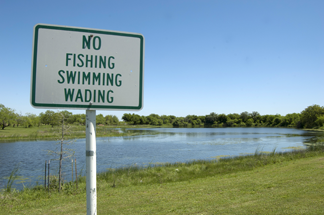By Kenney Kost/reporter
Literature flourishes among society in families and relationships and throughout daily lives. This sentiment and others were shared with a packed Center Corner audience on NE Campus March 27.
“Poetry is a great act of discovery,” said Alberto Rios, Regent’s Professor of English at Arizona State University. “You don’t set out to write a poem. You discover it along the way, and there is something wonderful about that.”
Rios read several poems during the presentation, starting with what he called his two favorite love poems. Rios said he reads them every year on the eve of National Poetry Month in April. Two seventh-grade students wrote the poems in the 1970s while Rios was working with a program called Poets in Schools.
“The students were asked to work with a basic prompt, something like, ‘If your person were a metal or feature of geography, what would they be and why,’” Rios said. “Just a basic exercise, and these gems came out of it.”
The first of the two poems Rios read was written by a boy and titled “Mrs. X.”
“Mrs. X, you are my Central Missouri,” the poem reads. “I was born there. I grew up there. I had my horse there, and I want to go back.”
“Wouldn’t you want to be someone’s Central Missouri?” asked Rios.
The second poem, “Johnny, You Are a Spoon,” was written by a girl. “Johnny, you’re a spoon. I hold you. I eat with you. I make music with you, but you’re just one of a set.”
“I love it, and what I love most about it is that she discovered it in that little progression of things you might do with a spoon,” Rios said.
Next, Rios read a poem he wrote and read when former Mexican President Vicente Fox visited Nogales, Ariz., at the Mexican border. The poem, “Borderlines” will be inscribed on the new border crossing currently being built. Rios read the poem in both English and Spanish, just as he read it originally.
“We seem to live in a world of maps, but in truth we live in a world made not of paper and ink, but of people. Those lines are our lives,” he read.
When he finished reading the poem in Arizona, Fox spoke to him.
“The president shook my hand and said, ‘I really like the poem,’ and I said, ‘I do too,’” Rios said. “Then I said, ‘But you know, the work of doing this is up to you.’”
Rios then told the story of his mother and father and how their lives ultimately came together. His father was from Mexico near Guatemala, and his mother was from England and ended up in Nogales, where Rios was born in 1952.
“I grew up in a household full of sound, color, love, and my parents forged my work,” he said. “I come from a family of stories. We all come from stories.”
Literature is all around if people choose to read into their lives a little deeper, Rios said.




























